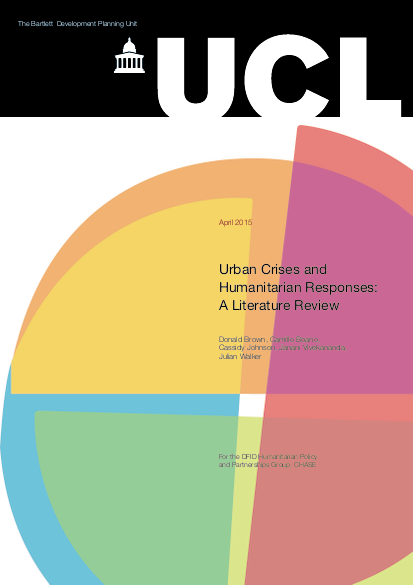
Many international actors have yet to become operationally effective in responding to crises affecting urban areas. In an effort to help address these challenges, this paper aims to inform DFID’s current work on urban humanitarian response through assessing the current state of literature on the subject, with a particular focus on both the impacts of crises and humanitarian responses on urban areas. Overall, the paper emphasises the need to reframe the problematic away from an emphasis on good/‘best’ practices and towards the need to better understand urban systems and processes as a basis for informing more contextually appropriate and dynamic urban responses. The main body of this review is structured around four main themes: complex/diverse communities; infrastructure systems; markets; and local governance structures and capacities.
Links
Resource collections
- Evaluating humanitarian action
- Monitoring and Evaluation (M&E)
- Monitoring of humanitarian action
- UN Habitat - Urban Response Collection
- Urban Response - Urban Crisis Preparedness and Risk Reduction
- Urban Response Collection - Community Engagement and Social Cohesion
- Urban Response Collection - Economic Recovery
- Urban Response Collection - Environment and Climate Change
- Urban Response Collection - Housing, Land and Property
- Urban Response Collection - Urban Crisis Response, Recovery and Reconstruction
- Urban Response Collection - Urban Resilience
- Use of evaluation evidence
